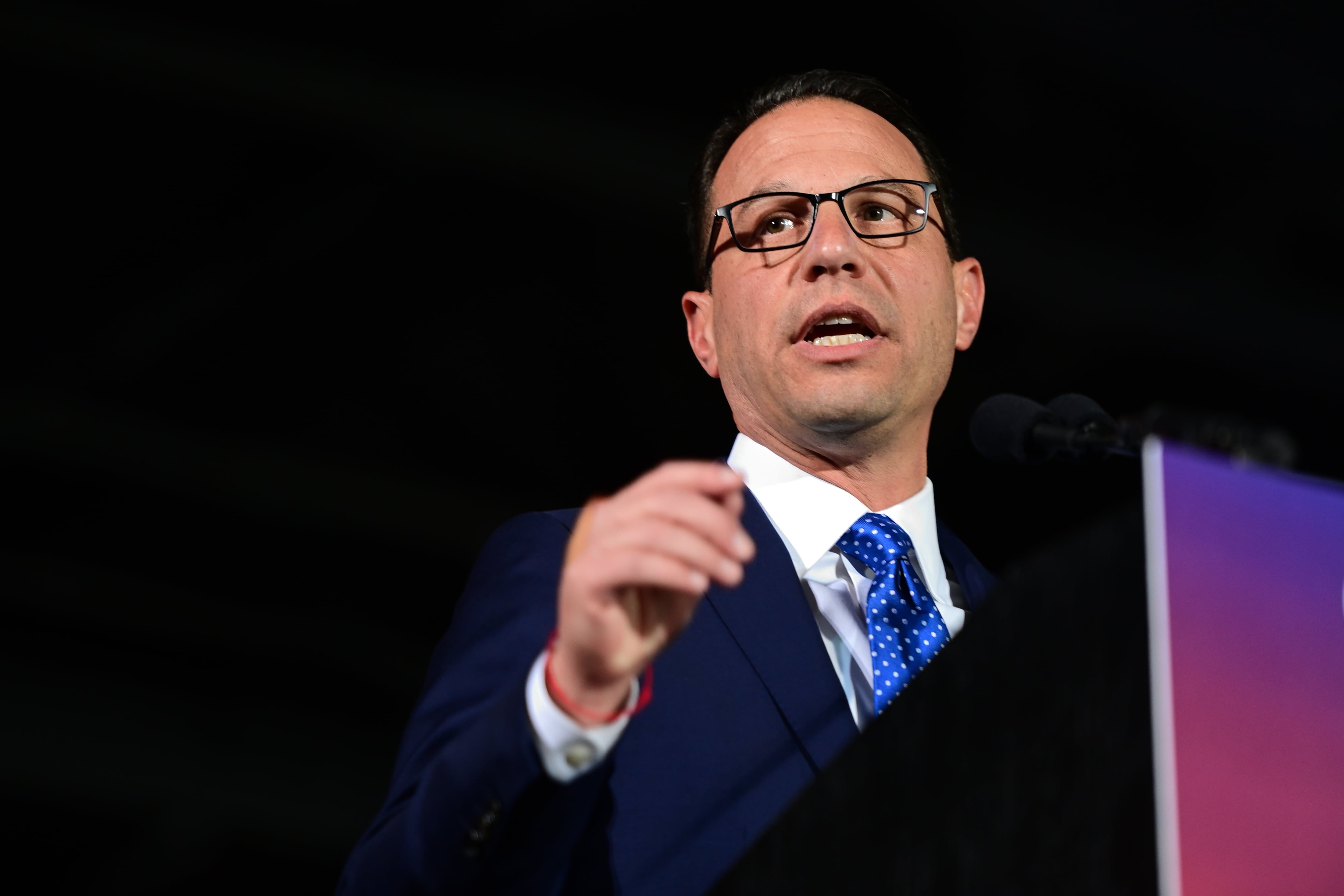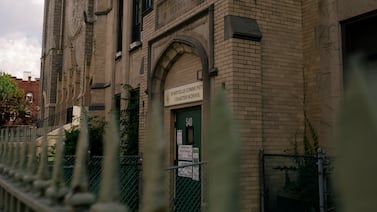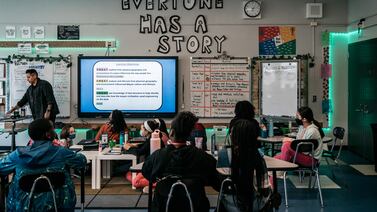When governor-elect Josh Shapiro takes office next week, he will have a $5.4 billion budget surplus, which could bode well for arguments in favor of additional state funding for education.
But he will also face significant challenges in directing that money where it is most needed, along with a teacher shortage of historic proportions. Shapiro will also have to work with a divided General Assembly, although Democrats gained seats in last year’s elections. And GOP lawmakers have already demonstrated that they have their own education policy priorities.
A high-profile lawsuit could also influence Shapiro’s strategy. Commonwealth Court Judge Renee Jubelirer could issue a ruling at any time in a long-running school funding case, William Penn School District et al. v. Pennsylvania Department of Education et al., in which plaintiffs have claimed that the state’s current K-12 funding system is unconstitutional and deprives many students of their right to a “thorough and efficient” education.
The case has lasted eight years so far. Over that period, Pennsylvania’s school funding system has consistently ranked as one of the most inequitable in the nation, according to a report by the Education Trust, with some districts spending three times as much as others and students from low-income backgrounds — for the most part — receiving fewer resources than those in wealthier districts.
Still, the case most likely will head to the state Supreme Court regardless of how Jubelirer rules, making a resolution unlikely for some time. And some advocates think that Shapiro will not need court prodding to propose more spending on education.
Last year, as the state attorney general, Shapiro filed a brief in support of the plaintiffs in which he praised “tireless teachers and administrators who have struggled for years to do the most for our children with the least amount of resources.” During the 2022 gubernatorial campaign, Shapiro said school funding reform would be one of his priorities.
“Absolutely, he talked about fully funded public schools,” said Susan Spicka, executive director of Education Voters of PA, an advocacy group.
Sharon Ward, senior policy advisor for the Education Law Center, which is representing plaintiffs in the funding lawsuit, said Shapiro’s brief as state attorney general demonstrates “a deep understanding of the problems with the school funding system.”
“He said districts don’t have the funds they need to educate students,” Ward said.
School choice, teacher pipeline already top issues
Politically, though, Shapiro’s path forward regarding the issue will have plenty of obstacles. Shapiro, a Democrat, will take office Jan. 17 with a closely divided and tumultuous House, and a Senate that is still firmly in Republican hands.
In the court case before Jubelirer, Republican legislative leadership rejected the idea that increasing school funding is the answer. They said the current funding system, which is heavily reliant on local property taxes, nevertheless passes constitutional muster.
They also argued that having a “thorough and efficient” system of public schools, as the state constitution mandates, requires only a basic standard of functional schools staffed with certified teachers.
As Shapiro prepares to take office, Senate Republicans have already introduced legislation that would increase the allocation for their favored strategy of expanding school choice programs that underwrite student attendance at private and parochial schools.
They want to expand two programs: the Education Improvement Tax Credits (EITC) and Opportunity Scholarship Tax Credit (OSTC) available to low and middle income families. Created as an alternative to providing money for vouchers directly to parents, these programs give tax breaks to corporations for donating to organizations that provide private school scholarships.
The OSTC program, the smaller of the two, is specifically targeted to students attending the lowest performing 15% of schools in the state, many of which are in Philadelphia.
During the term of Shapiro’s predecessor, Gov. Tom Wolf, Republican legislators made expanding these programs a key demand during budget negotiations. This year, they got a $125 million increase as part of the $45.2 billion state budget, even though a recent report by the state’s Independent Fiscal Office found that it could not determine whether “state funds have been used effectively due to lack of general and specific outcome data.” (That state budget for 2022-23 increased education spending by $850 million.)
The legislation creating the program also banned data collection that would allow an evaluation of the program’s effectiveness. The two programs now amount to about $340 million annually, but not all of that money goes to scholarships.
Perhaps in a nod to their popularity, Shapiro said during his gubernatorial campaign against Republican Sen. Doug Mastriano that he was “open to the concept” of “lifeline scholarships” for students who attend low-performing schools. (Mastriano will be vice-chair of the Senate Education Committee.)
Shapiro said later in his campaign that some school choice “is what I believe,”adding, however, that no program would come at the expense of increased basic school aid.
Along with the funding challenges, Shapiro will also face a historically unprecedented shortage of teachers. This shortage is especially acute in urban and rural districts, as the teacher pipeline shrinks and more teachers retire or resign.
Ten years ago, about 20,000 people graduated from state colleges with teaching degrees; now, that number is about 6,000.
In July, the state issued an education workforce strategy report with the goal of streamlining preparation, diversifying the candidate pool, and providing more access to “professional growth and leadership opportunities” for educators.
The issue is already getting attention from legislative leaders. Rep. Mark Rozzi, a Democrat and the new Speaker of the House, has introduced legislation that will provide $7,000 scholarships to students preparing to be teachers in the state college system.
In introducing his legislation, Rozzi noted that 50 years ago, 21% of students in the system were pursuing education degrees; now, that figure is 4%. Rozzi’s co-sponsorship memo also noted the impact of the pandemic on schools and teacher attrition.
Correction: This story has been updated to reflect that former Republican gubernatorial candidate Doug Mastriano is vice-chair of the Senate Education Committee.
Dale Mezzacappa is a senior writer for Chalkbeat Philadelphia, where she covers K-12 schools and early childhood education in Philadelphia. Contact Dale at dmezzacappa@chalkbeat.org.






